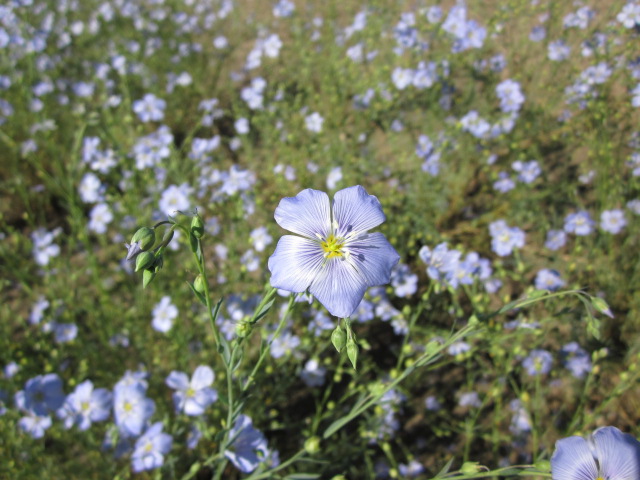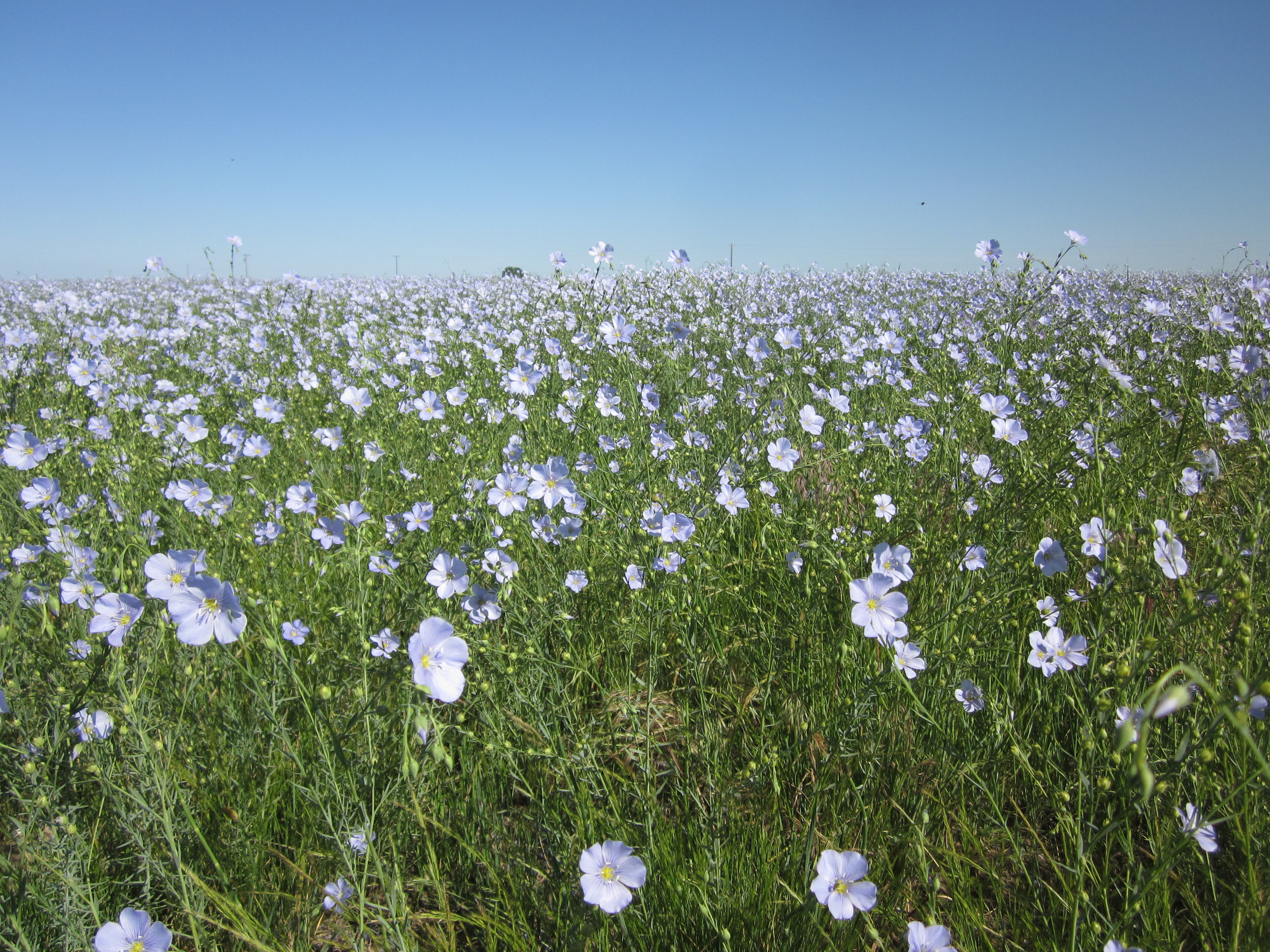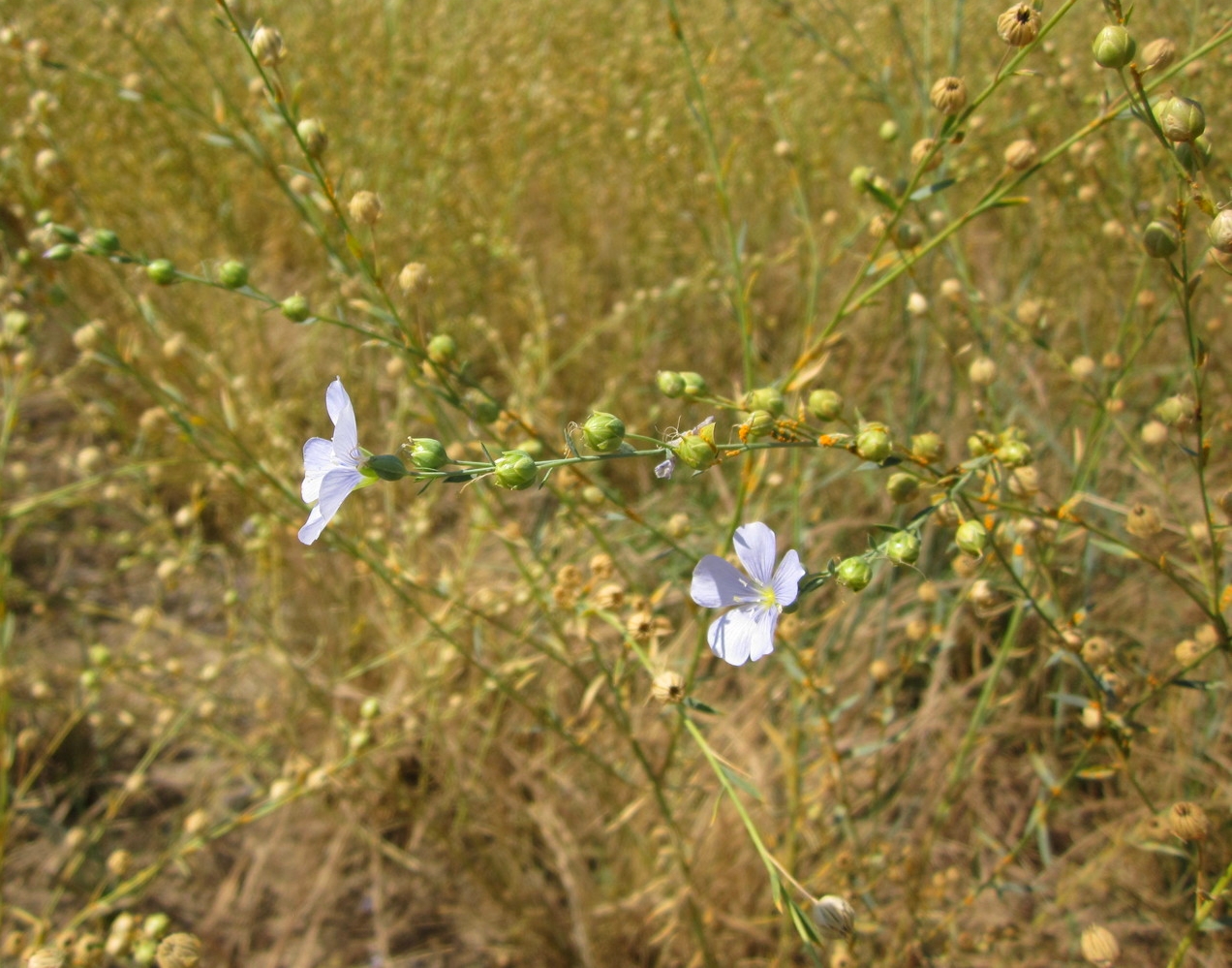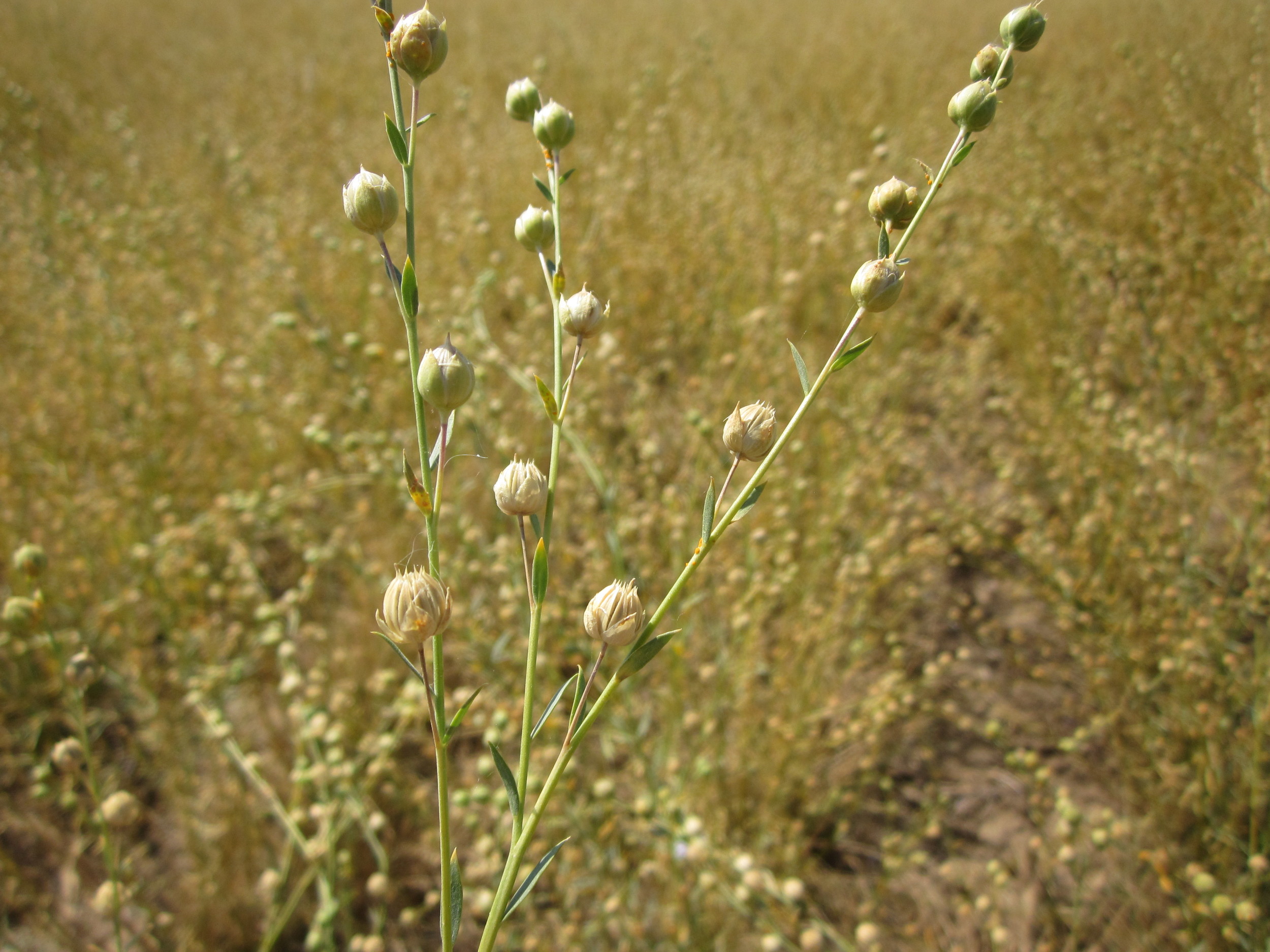Linum lewisii (Lewis flax)
Also called Prairie flax. Short-lived, drought tolerant native perennial with light blue flowers that are replaced daily from April to August. Widely adapted, occurring on well-drained, infertile and disturbed soils of mixed grass prairies, shrublands, woodlands and forest openings; up to 12,000 ft. elevation. Cold hardy. Intolerant of poor drainage, flooded soils or high water tables. Use for habitat restoration, reclamation, roadsides and beautification. Also use in green strips and fuel breaks; semievergreen and fire resistant. Eaten by livestock and wild ungulates, especially deer and antelope. Birds eat the seeds in fall and winter. Varieties listed below.
DISTRIBUTION / ADAPTATION
INFORMATION & ATTRIBUTES
Family: Linaceae
Duration: Perennial
Growth Habit: Forb/herb
Native Status: Native
Growth Form: Bunch
Mature Height: 30 in.
Bloom Color: Light blue
Bloom Period: Indeterminate
Annual Precipitation: 10-20 in.
Drought Tolerance: Medium
Shade Tolerance: Intolerant
Elevation:
Fire Resistance: No
Fire Tolerance: Low
Nitrogen fixation:
SOIL ADAPTATION
Coarse Texture: Yes
Medium Texture: Yes
Fine Texture: No
Salinity Tolerance: No
CaCO3 Tolerance: Low
pH Range: 5.6-8.4
SEEDING NOTES
Seeds per Pound: 294,800
Seeding Rate: 1.5-2.5 PLS lbs/acre
Season: Spring/Fall
Days to Germination:
VARIETIES & LOCAL ACCESSIONS
Columbia - Source Identified selection from Sherman & Gillman Counties, OR averaging 11-13 in. annual precipitation.
Maple Grove - Outstanding vigor, beauty and overall competitiveness with grasses. (Released 2003)





